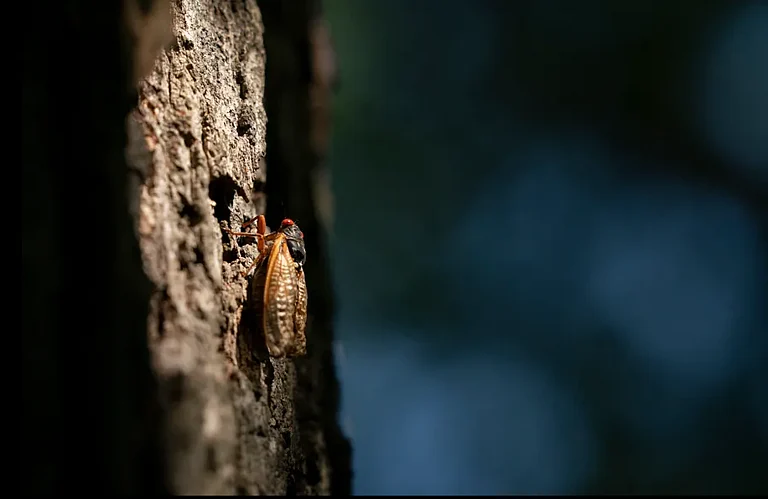The great cicada comeback has hit the United States, with multiple states anticipating the emergence of two broods of cicadas by the trillions. As these insects swarm this season, many pet owners are wondering if their pets are at risk from eating these noisy visitors.
Pet Ate A Cicada? Here’s What You Need To Know
The cicadas are swarming across multiple states in the U.S., with two broods expected to emerge by the trillions. While they are generally not harmful to pets, consuming large quantities or having an allergy can cause health issues.

Amanda Fredal, a licensed veterinary technician and director of live pet care at Pet Supplies Plus in Georgia, reassured pet owners in an interview with Fox News Digital that cicadas are generally not toxic to pets.
However, she warned that consuming large quantities of cicadas or having an allergy to them could cause gastrointestinal upset or allergic reactions in pets.
Fredal explained that symptoms of gastrointestinal upset in pets include vomiting, diarrhoea, abdominal pain, and a decreased appetite. Signs of an allergic reaction can include itching, redness, swelling around the face, mouth, or throat, hives, or difficulty breathing. If a pet has an adverse reaction, they might seem lethargic or unusually tired.
In more severe cases, pets might experience respiratory distress, which can manifest as coughing, wheezing, or difficulty breathing. Rarely, severe reactions can lead to neurological symptoms such as tremors, seizures, or disorientation.
Fredal emphasised the importance of monitoring pets for any signs of distress and consulting a veterinarian if concerns arise. "If pets exhibit vomiting, diarrhoea, lethargy, or difficulty breathing, contact your veterinarian for guidance," she advised.
To prevent pets from eating cicadas, Fredal suggested supervising them closely while outdoors and using deterrents or barriers to keep cicadas out of reach. Additionally, providing engaging toys and activities indoors can help divert pets' attention away from cicadas. Some alternative enrichment activities include frozen treats, snuffle mats, lick mats, or other pet-friendly games.
Managing cicada access in your yard can be challenging. Fredal recommended trimming vegetation where cicadas gather or using netting to cover these plants. "Keep your lawn short, as cicadas prefer taller grass," she said. "Consider using insect repellents or traps designed to deter cicadas."
Fredal also noted that pets with sensitive stomachs, dietary restrictions, or shellfish allergies might be more sensitive to cicadas. Other animals, such as poultry, waterfowl, reptiles, fish, and exotic mammals, are likely to consume cicadas as a high-protein food source.
Pest removal expert Ryan Fowley from Excel Pest Services in New Jersey described cicadas as "relatively harmless" in a previous interview with Fox News Digital. He emphasised that while cicadas are abundant, they are not harmful to humans, plants, or crops. They don’t bite or sting, and they are mostly safe for pets to eat, particularly when they are young.
Fowley warned that larger adult cicadas have crunchy exoskeletons that could pose a choking hazard for pets. He described the insects as having black bodies about 1.5 inches long and wingspans of about 3 inches. Even if cicadas aren’t seen, they will certainly be heard, as their mating calls can exceed 100 decibels, comparable to the noise of a jet plane during takeoff.
-
Previous Story
 Hurricane Milton Now At Category 5; Florida Evacuates And Braces For Landfall | What We Know
Hurricane Milton Now At Category 5; Florida Evacuates And Braces For Landfall | What We Know - Next Story




















